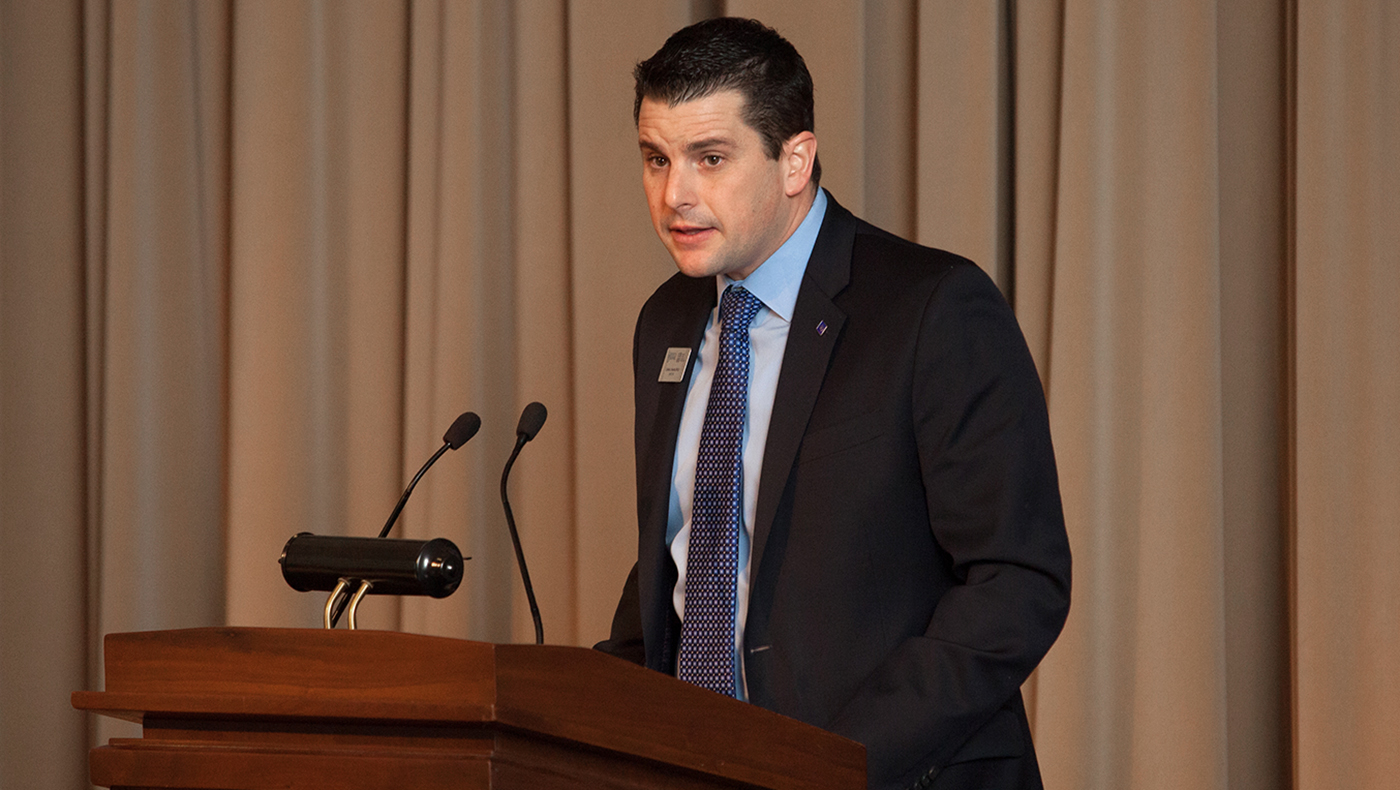Former Vice President and University of Delaware alumnus Joe Biden will host The Biden Challenge Conference at the UD on Friday, Sept. 28. Carlos Asarta, professor of economics and director of the Center for Economic Education and Entrepreneurship (CEEE) at UD’s Lerner College, will participate in one of the conference’s plenary sessions on how to revitalize the middle class in the United States.
In this Q&A, Asarta previews what he’ll be discussing at the Biden Challenge and addresses why these issues are so important to achieving the Biden Challenge’s goals:
Can you give us a preview of what you’ll be discussing at the Biden Challenge?
I will be discussing the importance of economic and personal finance education for the prosperity of the middle class. I have to admit that defining “middle class” is difficult since many factors can determine if someone is included in that group (e.g., income, economic resources, type of job, or self-perception). Even typical middle-class jobs, such as being a teacher or a police officer, have different educational requirements, on-the-job training, and median pay.
There is, however, something all middle-class individuals have in common: They make economic and personal finance decisions daily. Those decisions, if not made properly and using the right knowledge, can have devastating short-term and long-term implications.
The Biden Challenge focuses on how to revitalize America’s middle class. Why is what you’re discussing so important to achieving this goal?
A recent report by the Global Financial Literacy Excellence Center at The George Washington University shows that approximately 30% of middle-income households would struggle to come up with $2,000 in 30 days, with most of them relying on borrowing money from family and friends to achieve that goal. Another recent report from the Federal Reserve Bank of St. Louis, based on the most recently available Survey of Consumer Finances, shows that 35% of all U.S. households have no money saved in any type of retirement account. Additionally, for those households with retirement savings, the median balance is approximately $1,100.
These two findings are prime examples of the current personal finance crisis faced by most households in the United States and, in particular, by the middle class. Budgeting, saving for emergencies, investing, contributing to retirement accounts, using credit wisely, and many other economic and personal finance topics need to become a staple of every student’s education in the United States so that they can contribute to their own prosperity and that of our society.
What do you hope is accomplished by discussions like the plenary session and/or taking the actions you discuss in the plenary session?
Revitalizing the middle class is a challenging and complex task, but also one of incredible importance. In our session, we will have several academics discussing financial inclusion, infrastructure investment, social inclusion and economic prosperity. Other sessions will cover topics such as the roles that innovation, education and employment play in the revitalization of the middle class.
Our goal? As former Vice President Joe Biden put it back in October: to engage in public policy and service to ensure that the American middle class prospers and continues to be relevant. The policy solution I propose is the requirement that all K-12 students get exposed to a practical and effective economic and personal finance education in our school system.
The Lerner College, via its CEEE, is doing its part to contribute to this cause! The Delaware K-12 Financial Literacy Standards, approved by the State Board of Education in January of 2018, are to be implemented in the next two to three years. The CEEE has been tasked with developing training for teachers, curriculum resources and models of implementation. It is our goal to make sure that every student in Delaware receives the training needed to be able to make informed economic and personal finance decisions.




